Marcel van den Berg is a PADI Platinum Course Director who resides and teaches in Koh Tao, Thailand. He left The Netherlands to become a scuba diving instructor. As a Course Director, he now teaches professional divers to become scuba instructors.
How did you get into the diving industry?
It all started in 2003 when I took the PADI Open Water Diver Course in Gilli Trawangan in Indonesia. I always loved watching marine life documentaries and adventure movies, and taking a scuba diving course on my holiday was very attractive to me.
I have to admit that before the start of the diving course I had my doubts and worried about how safe diving was. This fear was taken away very quickly in the confined water dives. During my first dive, I realized what an incredible new world there was underwater.
Scuba diving costs money. So I was thinking about how to make money with scuba diving instead of paying for it, and becoming a dive instructor could make this happen. Later I realized that there are many more benefits to becoming a diving instructor. Especially teaching others to overcome their fears, introducing them to the aquatic world, and just giving them an unforgettable experience on their holiday is just incredibly awesome!
What did you do in your ‘previous life’ and where?
I had many different jobs and studies in Amsterdam, the Netherlands where I am from. I always felt a bit lost, not knowing what I wanted to do in my life. So the idea of living abroad on a tropical Island, being surrounded by happy people, and teaching someone my passion seemed like the best next step. I have never regretted it!
Tell us about your personal journey to becoming a PADI course director.
I initially thought about becoming a diving instructor, travel the world, and making a living with something I love to do. However, throughout my diving courses, I noticed some of the best dive instructors and some of the worst. I realized quickly like in any other industry that you had amazing professionals, bad professionals, and everything in between.

What was important to me was seeing divers being trained by great diving instructors who usually had a life-changing experience and some even became dive professionals themselves, inspiring others to become like them. I also saw some people being trained by the worst diving professionals resulting in most of them quitting scuba diving or even worse, getting inspired to become bad dive professionals themselves.
I believe that if you teach someone with a positive attitude and give 5000%, they most likely will be inspired to do the same. This started my journey towards becoming a PADI Course Director. I wanted to inspire a future generation of successful diving instructors.
How do you become a PADI Course Director?
To become a PADI Course Director you need to tick checkboxes before you can apply. As mentioned before, I started my PADI Open Water Course in 2003. I kept thinking about becoming a Diving Instructor almost every day and finally after 4 years, I booked the PADI Advanced Open Water Course to PADI Master Scuba Diver Trainer. This was a Zero to Hero Package including the PADI Advanced Open Water, EFR, Rescue Diver, Divemaster, IDC, and MSDT course. It took me 1 year to complete all these courses including some extra experience during my Divemaster Course.
During my PADI IDC Course, I was so inspired by my amazing PADI Course Directors Jonas Samuelsson and Tim Hunt, that I decided to take my PADI IDC Staff Instructor Course straight after the MSDT program.
After completion, it was time for more experience. There need to be 2 years between your PADI Open Water Scuba Instructor rating and the PADI Master Instructor rating. In this time I taught all PADI Recreational courses and every few months assisted an IDC Course as an IDC Staff Instructor.

One of the best parts of training and working on Koh Tao is the number of people visiting the Island. Koh Tao trains some of the highest amounts of diving students worldwide. With this amount of students, I had the opportunity to gain a lot of experience and teach people on all PADI levels. By the time I was ready for my course director course I had taught over 4000 students in all PADI levels.
From day one I focussed on the checklist to be able to apply for Master Instructor and Course Director, so by the time I was allowed to apply I had more than enough PADI credits to apply for the Courses. Finally, in 2011, I received amazing news from PADI that I was allowed in the PADI Course Director Training Course (CDTC)!
Did you have to overcome any fears, or obstacles to get where you are now?
Personally, the biggest obstacles to becoming a Course Director was time, money, and reputation.
Time
Not only does it take time to complete all those courses, but it also takes even more time to become a successful Course Director in the future. There is a lot more to being a CD then most people think. Besides giving 100% energy to your students, we also need to build websites, answer emails, work on marketing, keep studying, and updating ourselves. Being a manager, owner, teacher, secretary, marketeer, SEO, website builder, and more all together is best described as being a Course Director for IDC programs. Some Course Directors have it harder than others. I am grateful to work at Sairee Cottage Diving that has great management and staff with lots of support towards my program.
I always say “it doesn’t manner how good you are as a teacher, without any students you can’t shine as a teacher”. This Sounds a bit demotivating, but I can tell you teaching future generations of Dive Instructors is worth every minute you put into it!
Money:
It was quite expensive to become a Course Director. All of the courses cost money; a lot of fees, materials, and diving equipment. However, the biggest cost for me was assisting extra IDC’s for more experience. I staffed 12 IDC courses before taking the Course Director course, instead of the minimum 2 (after completion of the IDCSI course).
During these months you cannot work and I was already making good money as a recreational diving instructor. I know a lot of people believe that being a diving instructor does not pay well, but it depends on how you play your cards. I was working for the biggest Dive School in the world at that time, so I earned a very nice income. That loss of income was a big obstacle.
Finally, the Course Director course was expensive and I had to travel to the Caribbean where the CDTC was giving. I do have to say that it was worth all the investment. Not only was the PADI Course Director course amazing, but you get a valuable certification and the opportunity to earn your investment back. So was it worth it? Absolutely!
Reputation:
Climbing the ladder to success is not always easy. You do meet fantastic friends down the road that help you, but also some people that might get a bit jealous. It is vital to building a good reputation as a Course Director to receive students that want to learn from you. Working on this reputation is not always easy and very time-consuming. But if you stick to it, work hard, and have a positive attitude you will get there!
What has been the most rewarding part of your diving career?
The most rewarding was also one of my most challenging situations. Dealing with a student diver having a panic attack quite deep, in bad visibility, while having a strong current and just pretty much some of the worst conditions. The diver hit my mask and regulator second stage off my face on the way up to the surface. This was definitely not one of the best moments in my career, but we both made it back safe and I learned a lot from the situation. With a bit of extra training, the diver continued diving with me on one on one courses and is now an active PADI Divemaster helping others to overcome their fears. She became my friend and we are still in contact regularly.
This taught me, that with the right training, patience, and good attitude you can not only overcome people’s fears, but you can inspire them to teach others to overcome their fears. This is extremely rewarding to me and one of the best parts of being a dive professional.
What is your biggest professional milestone so far?
There are 3 milestones for me. The first was becoming a PADI Course Director, the second was receiving the PADI Outstanding Contribution to Instructor Development Award and the third was being able to teach monthly IDC Courses, this resulted in receiving the PADI Platinum status since the start of my Course Director Career.
What is your preferred teaching style?
I love teaching with storytelling. Relating the topic with actual real-life stories can make a power memory imprint. I learned that by just mentioning information or reading will not create a long-lasting memory for most people. Storytelling in my opinion does.
I believe that passing the Instructor Examination is not the end goal. The end goal should be getting work and becoming successful in your new career as a Diving Instructor. This needs good storytelling. Passing the IE can sometimes be achieved by just mentioning the information. Some IDC’s are taught like that, as it is easy for a Course Director with the least amount of effort. Storytelling takes more energy, but it is also fun, like reading a good book.
In your experience, what makes a great instructor?
Having a great attitude!
There are many more attributes that make a good instructor, but attitude is by far the most important one. I understand that being an excellent scuba diver, being knowledgeable, speak languages, etc. are important to be a good Dive Instructor. But none of that matters if you have a bad attitude.
Sadly in most cases, people with bad attitudes don’t know they have them (otherwise they would change them). They are convinced they have amazing attitudes and this is one of the main reasons, why they fail in getting or maintaining work as a diving instructor. They usually blame it on everyone and the industry, but we know it’s because of their negative or weird attitude… Continue reading

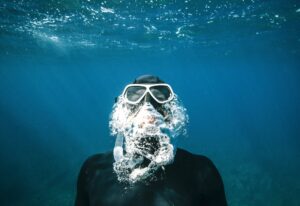

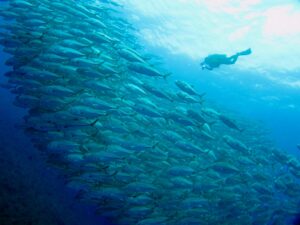
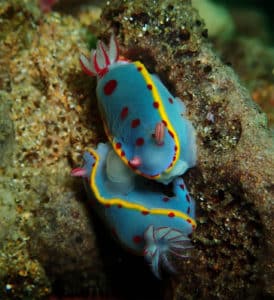

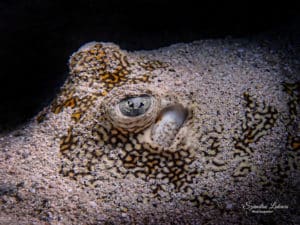
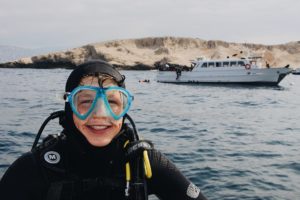


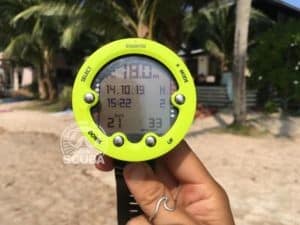
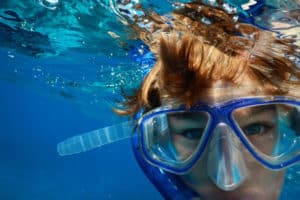
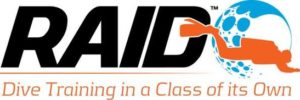
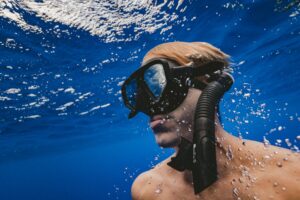

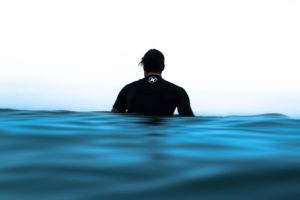
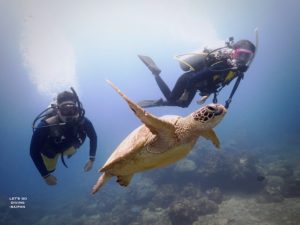
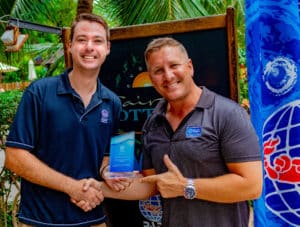
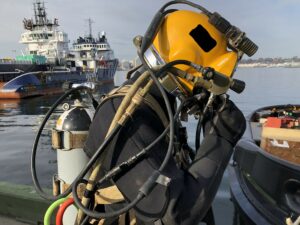
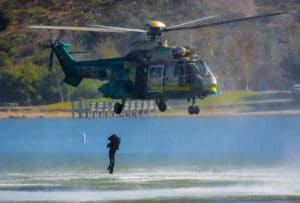
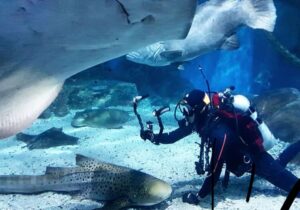
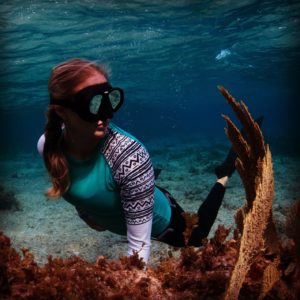
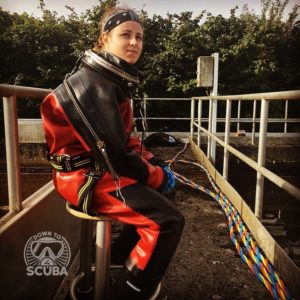
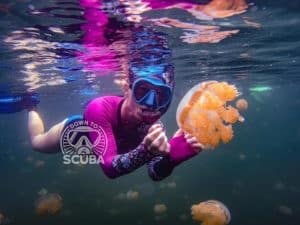
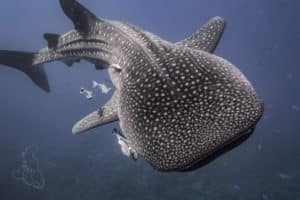
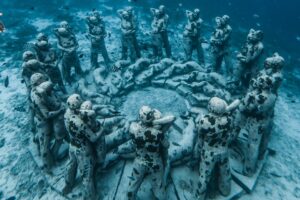

Leave a Reply
You must be logged in to post a comment.